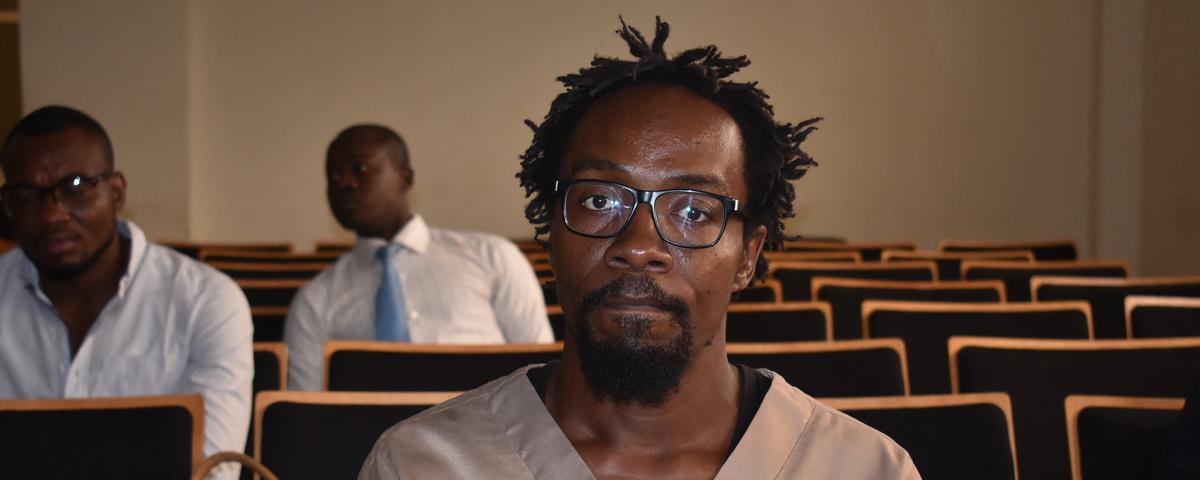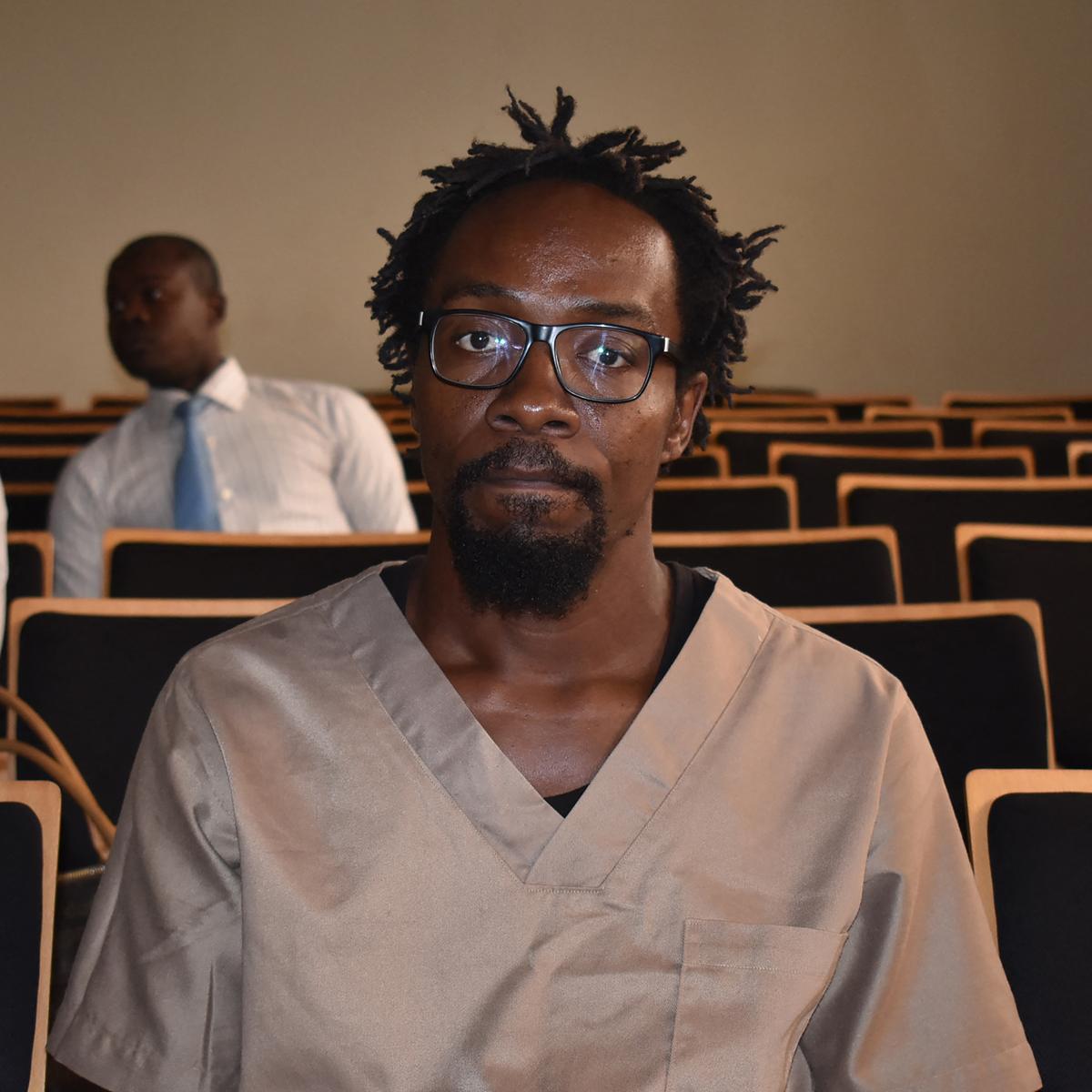It was September 2018, but I have decided to forget the day. My father —a member of the dictatorial government that expelled me from my country after months in prison— had made sure that there was no-one else in the waiting room at the international airport in Malabo, the capital of Equatorial Guinea.
We were alone: my father, me, and my son, his teenage grandson who had to stay in the country under difficult conditions. We were alone, my father, me, and my son, and we said goodbye talking about the things families talk about: We said my sisters’ names and discussed the difficulties of the situation we were facing. We tried, each in our own way, to remember how much that country of mine meant to me, the country I was being forced to leave after spending too many months in a terrible prison accused of a terrible crime: drawing. Drawing political satire against the tyrant who has ruled Equatorial Guinea since 1979 —more than 45 years ago— and who is the longest-serving dictator in the world: Teodoro Obiang Nguema.
We talked and talked about almost everything one can talk about in a situation like that, but no-one uttered the word “exile.” My father did not say it because I imagine that Don Tomás, as my elderly father is called, never in his life thought of sending one of his sons into “exile.” I did not say it either, but I felt it.
That Night, I Knew I Was an Exile
Since that day seven years ago, and although no one at that farewell mentioned the word exile, there has been, and continues to be, a great deal of sacrifice and pain. Not only mine and that of my family.
Since that day seven years ago, and although no one at that farewell said the word exile, I feel exiled because the government of my country, protected by dictatorial laws, prevents me from exercising my rights as a citizen.
Since that day seven years ago, and although no-one at that farewell said the word exile, I have been denied the passport that is rightfully mine, and that I have demanded without success. Since that day seven years ago, and although no-one at that farewell mentioned the word exile, I have had to demand that the Spanish authorities recognize me as an exile and political refugee. That is what I am, here and now, in Madrid, where I live.
Since that day seven years ago, and although no-one at that farewell mentioned the word exile, I still do not accept it. I have taken no liking to it. I cannot get used to using it. I do not want to use it because, although my circumstances are clear, and I try not to confuse my desires with reality, I feel that if I let it into my head, it is as if I were surrendering to the dictatorship that rules my country.
No Evil Lasts a Hundred Years
Not accepting the word “exile” is a great motivation, and although many people tell me, “Accept it, kid,” I always reply: If I do not accept that word, if that word has no place in my head, it does not exist.
The thing is, as I always say, I am not in exile because I was in prison for drawing against a dictator. I was expelled from my country for “love.” In my mind, the word ‘love’ replaces “exile”: I am in exile because I love freedom, I love human rights, I love activist art, and I love freedom of expression.
I love all those things that do not yet exist in my country.
Nzé Esono Ebalé is an artist from Equatorial Guinea exiled in Spain.

